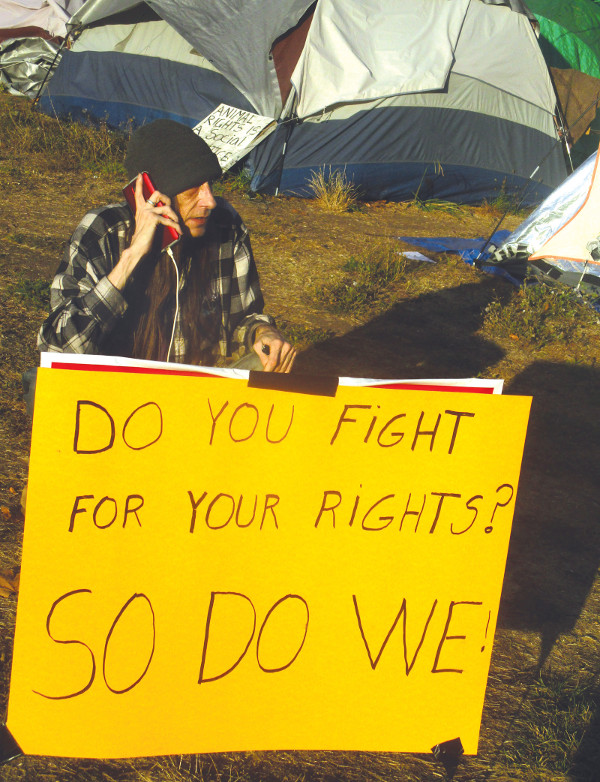
straining order to a threatened raid on the site.PHOTO/SARAH MENEFEE
Cairo, Illinois, this impoverished historic river town located at the confluence of the Ohio and Mississippi Rivers has been at the center of the national public housing crisis since it was revealed that the authorities in charge of two housing complexes misused funds and allowed the buildings to deteriorate.
With national attention, in stepped HUD Secretary Dr. Ben Carson. The decision was made to tear the housing complexes down. Instead of guaranteeing the people decent affordable housing in the community in which they lived, Carson offered platitudes and regrets that the government could not do more than give vouchers and leave the families on their own to find housing elsewhere. HUD was no longer in the business of providing public housing!
Denying public housing to families in need has been going on for decades, under both Democratic and Republican administrations. It was President Bill Clinton who made it easier for federally funded housing to exclude anyone with a “criminal” history with his “One Strike You’re Out Initiative.” And it was under Clinton that funding for public housing was reduced by $17 billion, while corrections spending rose by $19 billion.
Out of a population of 2400 in Cairo, the public housing complexes were home to 400 people, families, who want to live their lives in the community, raising their children with hopes and dreams for a better future, just as all working families have done for generations. While the families affected here are predominantly Black, this scenario is playing out in communities all across America, affecting people of all colors and ethnicities.
This is a moral crisis. What kind of society does not provide for its people? What kind of society turns against the very heart and soul of its base, the working families that have been its lifeblood?
In this society, houses, like food, clothing, and even life sustaining water, are “commodities” available only to those who can afford the price. The very workers who built the housing with their blood, sweat and tears, face evictions and homelessness.
We live in a time of abundance. There is plenty of all the things we humans need to live decent meaningful lives. We could have a whole new society where everyone’s needs are taken care of. According to Amnesty International, there are 18 million empty housing units in America. We, the people, need to take our future into our hands. Let’s begin by putting the people without homes into the empty houses. That’s a solution we can morally stand behind!


I just read the Chicago Tribune article shared by First they came for the homeless on Facebook. That’s ‘ that the judge ruled against the homeless. With rulings like that, who’s going to guarantee tent encampments, housing for the homeless, for those about to be homeless? And the sad thing is many people think it’s the homeless people’s fault.